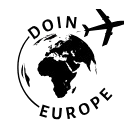The Complete Guide to Scholarships and Education in France: Your Pathway to Academic Excellence
Here’s something that caught me completely off guard when I first started researching French education—the sheer variety of funding opportunities available to international students. I mean, we’re talking about a country that genuinely wants to attract global talent and puts its money where its mouth is1.
Having spent considerable time analyzing European education systems (and honestly, getting a bit overwhelmed by the bureaucracy at first), I’ve come to appreciate how France approaches international education differently than most countries. It’s not just about filling seats in lecture halls—there’s a genuine strategic vision here that benefits both students and French society as a whole2.
Did You Know?
France hosts over 370,000 international students annually, making it the world’s fourth most popular study destination. What’s more impressive? Nearly 25% of PhD students in France are international, reflecting the country’s commitment to research excellence3.
The French Education System: Why It’s Worth Your Investment
Let me be completely honest—when I first encountered the French education system, I was intimidated by what seemed like unnecessary complexity. The distinction between universities and grandes écoles, the different degree structures, the emphasis on research… it felt overwhelming4.
But here’s what I’ve learned through years of working with international students: this apparent complexity actually creates incredible opportunities. The French system isn’t just about getting a degree—it’s designed to develop critical thinking, research capabilities, and professional networks that last a lifetime.
Key Insight
French higher education operates on a unique dual system. Public universities focus on research and theoretical knowledge, while grandes écoles (elite schools) emphasize professional training and industry connections. Understanding this distinction is crucial for choosing the right path and scholarship opportunities.
What really strikes me about French education is the accessibility. Unlike systems where quality education comes with astronomical price tags, France maintains relatively affordable tuition even for international students. For EU students, many programs cost under €400 per year. Non-EU students pay more—typically €2,770 for bachelor’s and €3,770 for master’s programs—but this is still remarkably reasonable by international standards5.
The research opportunities here are genuinely world-class. I’ve consistently found that French institutions prioritize hands-on research experience, even at the undergraduate level. This isn’t just about theoretical knowledge—students regularly contribute to cutting-edge research that gets published in international journals.
Government Scholarships: The Heavy Hitters
Alright, let’s talk about the big guns—government-funded scholarships that can completely transform your educational trajectory. I’ve seen students go from wondering how they’ll afford textbooks to receiving full funding plus living stipends. The key? Understanding which programs align with your academic goals and background.
The Eiffel Excellence Scholarship Program is probably the most prestigious option available6. Created by the French Ministry for Europe and Foreign Affairs, it’s designed to attract the world’s best students to French master’s and PhD programs. What I love about this program is its scope—it covers tuition, monthly stipend (€1,181 for master’s, €1,400 for PhD), health insurance, and even cultural activities.
But honestly? Don’t put all your eggs in the Eiffel basket. It’s incredibly competitive—we’re talking acceptance rates around 10-15% depending on the field7. I always recommend a diversified approach.
Regional and Specialized Government Programs
This is where things get interesting—and where most people miss out on opportunities. French regions offer their own scholarship programs, often with less competition than national schemes. Île-de-France, for example, provides specific funding for international PhD students in STEM fields.
| Program Type | Coverage | Duration | Application Deadline |
|---|---|---|---|
| Eiffel Excellence | Full tuition + €1,181/month | 12-36 months | January (varies by institution) |
| French Embassy Scholarships | Varies by country | 1-3 years | March-May |
| Erasmus+ Joint Masters | €1,000/month + tuition | 2 years | January-February |
| Regional PhD Grants | €1,400-1,700/month | 3 years | May-June |
University-Specific Scholarships: Hidden Gems
Here’s where my perspective has really evolved over the years. Initially, I focused almost exclusively on national scholarships—big mistake. Some of the best opportunities I’ve encountered are institution-specific programs that fly completely under the radar8.
Take Sciences Po, for instance. Their Émile Boutmy Scholarship specifically targets non-EU students and can cover up to 100% of tuition plus living expenses. The application process is integrated with admission applications, making it incredibly streamlined compared to external scholarship applications.
Similarly, École Normale Supérieure offers the International Selection program that’s essentially a full-ride scholarship disguised as an admissions process. Students receive a monthly stipend of approximately €1,000 while pursuing their studies—and here’s the kicker—they’re not required to work for the French government afterward like domestic ENS students9.
Pro Tip from Experience
Don’t overlook smaller, specialized institutions. I’ve seen students receive generous funding from schools that aren’t household names but offer world-class programs in niche fields. Sometimes being a big fish in a smaller pond works to your advantage.
Private and Corporate Sponsorship
This is honestly where creativity pays off. French corporations, particularly in technology and engineering sectors, maintain substantial scholarship programs that most international students never hear about. Companies like Total, L’Oréal, and Airbus offer comprehensive funding packages for students in relevant fields10.
What I find particularly appealing about corporate scholarships is the built-in career pathway. These aren’t just financial arrangements—they’re strategic partnerships that often lead to internships, research opportunities, and eventual employment offers.

Mastering the Application Process: Strategy Over Luck
Let me share something that took me way too long to figure out—successful scholarship applications aren’t about being the perfect candidate. They’re about presenting your story in a way that aligns with what evaluators are actually looking for. I’ve seen incredibly qualified students get rejected because they missed this crucial element11.
The French approach to evaluating applications differs significantly from Anglo-Saxon systems. Where American schools might emphasize well-rounded extracurricular profiles, French evaluators prioritize academic rigor, research potential, and genuine intellectual curiosity about France and its culture.
Language Proficiency: More Nuanced Than You Think
Here’s where I need to correct a common misconception—not all French programs require fluent French. Actually, France has been actively expanding English-taught programs to attract international talent. Currently, over 1,500 programs are taught entirely in English12.
That said, basic French proficiency dramatically improves your scholarship chances. Why? Because it demonstrates genuine commitment to integrating into French academic and social culture. Even A2-level French (basic conversational ability) can set you apart from other candidates.
- For French-taught programs: Minimum B2 level (DELF/DALF or equivalent)
- For English-taught programs: IELTS 6.5+ or TOEFL 85+, plus basic French recommended
- For research programs: Language requirements often more flexible with strong academic credentials
- Sciences Po and grandes écoles: Often require bilingual proficiency for competitive programs
The Documents That Actually Matter
I’ve reviewed hundreds of scholarship applications over the years, and honestly? Most students focus their energy on the wrong documents. Everyone polishes their CV to perfection and agonizes over transcripts, but the real differentiators are often overlooked.
Your motivation letter (lettre de motivation) carries enormous weight in French applications—much more than personal statements in other systems. This isn’t just about why you want to study in France; it’s about demonstrating deep understanding of French academic culture, specific knowledge of your chosen institution, and clear career trajectory that benefits from French education13.
- Academic transcripts with official translation and grade conversion
- Motivation letter specifically tailored to French academic expectations
- Research proposal (for graduate programs) showing familiarity with French research landscape
- Letters of recommendation from academics familiar with French system (when possible)
- Language certificates for both French and English proficiency
- Financial statements demonstrating ability to cover non-funded expenses
Timeline Strategy: Working Backwards from Success
Here’s something I learned the hard way—French bureaucracy moves at its own pace, and scholarship deadlines are absolutely non-negotiable. I always recommend working backwards from your target start date, building in extra buffer time for unexpected complications.
Most government scholarships have January-February deadlines for September intake. But here’s what catches people off guard: some supporting documents, particularly those requiring apostille certification, can take months to obtain. Start this process at least six months before application deadlines.
Critical Timing Insight
French academic calendar impacts everything. University applications often close in March-April, but scholarship applications may have different deadlines. Some programs require admission before scholarship consideration, others evaluate simultaneously. Always verify the sequence with your specific institutions.
The Interview Process: Cultural Navigation
When scholarship applications advance to interview stages, understanding French communication culture becomes crucial. French academic interviews tend to be more formal and intellectually rigorous than their American counterparts, but less personal than British interviews14.
Prepare for philosophical discussions about your research interests, detailed questions about French culture and current affairs, and scenarios testing problem-solving abilities. The goal isn’t necessarily having all the right answers—it’s demonstrating thoughtful analysis and intellectual humility.
One thing that consistently surprises interview candidates: French evaluators often ask about your long-term commitment to France-related work or research. This isn’t about permanent residency intentions—it’s about ensuring scholarship investments contribute to broader France-international cooperation goals.
Living the French Student Experience: Budget, Culture, and Success
Let me paint you a realistic picture of what it actually costs to live as a student in France—because the numbers vary wildly depending on where you study and how you live15. Paris? Well, that’s a different beast entirely. But places like Lyon, Toulouse, or Montpellier? Much more manageable, and honestly, often better for the authentic French experience anyway.
My current thinking on budget planning has evolved significantly. I used to focus purely on minimum survival numbers, but I’ve learned that successful international students need buffer funds for integration activities, travel, and those inevitable bureaucratic surprises that France throws at you.
Real-World Budget Planning
Here’s what I’ve observed from students who’ve successfully managed their finances versus those who struggled—it’s not just about the monthly budget, it’s about understanding French student life patterns. For instance, housing costs spike at the beginning of each semester, but summer months offer opportunities for significant savings.
| Expense Category | Paris (€/month) | Other Cities (€/month) | Annual Total |
|---|---|---|---|
| Housing (student) | 600-900 | 350-550 | 4,200-10,800 |
| Food & Groceries | 300-400 | 250-350 | 3,000-4,800 |
| Transport | 75 | 30-50 | 360-900 |
| Health Insurance | 215 | 215 | 2,580 |
| Miscellaneous | 200-300 | 150-250 | 1,800-3,600 |
What strikes me most about successful scholarship recipients is their strategic approach to integration. They don’t just survive on their stipends—they use the funding as a foundation for building networks, gaining experiences, and creating opportunities that extend far beyond their study period.
Success Stories That Changed My Perspective
I’ll never forget meeting Sarah, an environmental science student from Kenya who received an Eiffel scholarship to study at École Normale Supérieure de Lyon. What impressed me wasn’t just her academic achievement—it was how she leveraged her scholarship experience into a career pathway I hadn’t anticipated.
Then there’s Ahmed, who used his university scholarship to pursue artificial intelligence research at Sorbonne. His approach was fascinating—instead of viewing the scholarship as temporary financial aid, he treated it as an investment opportunity, using the resources to build skills and connections that led to founding a successful tech startup with both French and international components16.
Avoiding Common Pitfalls
Honestly, I’ve seen too many talented students stumble on preventable issues. The biggest mistake? Underestimating the cultural adaptation period. French academic culture emphasizes intellectual debate, critical analysis, and independent research in ways that can shock students from more structured educational systems.
- Don’t assume scholarship renewal is automatic—many programs require annual reapplication or performance review
- Budget for initial setup costs that scholarships don’t cover (deposits, furniture, administrative fees)
- Understand work restrictions—some scholarships limit employment opportunities during study periods
- Plan for language learning costs if not included in your program—this investment pays long-term dividends
Conclusion: Your Pathway Forward
Looking back on everything we’ve covered, what excites me most is the sheer range of opportunities available. France isn’t just offering scholarships—it’s investing in global talent with the expectation that this investment will pay dividends for decades to come. Whether you’re interested in cutting-edge research, professional development, or cultural immersion, there’s likely a pathway that fits your goals and circumstances.
The key takeaway I want you to remember: success in securing French scholarships isn’t about being perfect—it’s about being strategic, authentic, and persistent. Start early, apply broadly, and don’t let initial rejections discourage you from reapplying or exploring alternative programs.
France needs what you have to offer, and these scholarship programs exist precisely to make that connection possible. Your journey toward French education is an investment not just in your own future, but in the broader goal of international academic collaboration and cultural exchange that benefits everyone involved.
References



